What Is An Electrical Fire

Get Cash Offer
We will get back to you as soon as possible.
Please try again later.
Electrical fire is a type of fire that starts with electrical components, such as wires, circuit breakers, or receptacles. These fires can occur in any room in the home and often start behind walls. Electrical fires may be caused by faulty wiring, overloaded circuits, or faulty electrical outlets. If a fire occurs due to an electrical equipment failure, the insurance policy will usually cover the damage. However, it is important to remember that if the cause of an electrical fire was due to negligence or misuse of an appliance, the policy may not cover the damages.
What Usually Causes An Electrical Fire?
Electrical fire statistics are frightening because they occur without warning and can start from seemingly innocent sources like hair dryers or phone chargers left plugged in too long. Some electrical items can overheat and ignite nearby flammable materials, including furniture, curtains, or carpeting. Other common causes of electrical fires include:
- Frayed wires
- Overloaded circuits
- Shorts in electrical appliances or devices
- Extension Cords run under rugs or behind furniture
- Household appliances or fixtures with faulty insulation
- Using the wrong light bulbs for lamps and light
Types Of Electrical Fires
There are three types of electrical fires and they are:
Arc Fault: Arc faults occur when two wires come into contact with one another and create sparks. These sparks can then ignite nearby combustible materials.
Short Circuit: Short circuits occur when there is a break in the circuit wiring which causes an overload in the circuit and creates a spark that can ignite combustible materials.
Electrical Overload: Basically, an overload is where too much energy flows through electrical equipment causing it to overheat and start a fire.
What Are The Signs Of An Electrical Fire?
If your electrical circuit breaker trips frequently, it might be time to call an electrician to check out your electrical wiring. Lights that flicker on and off, multiple outlets not working at once, warm walls, and a burning smell are also signs that you may have an electrical fire. If you notice any of these signs, turn off all power immediately and call an electrician right away.
What Are Examples Of Electrical Fires?
One example of an electrical fire occurs when you plug too many appliances into one outlet or use light bulbs that are higher wattage than recommended for light fixtures. This causes the fuse box to trip and blow out the circuit breaker or fuse.
Another example of an electrical
fire damage is if you allow paper or other flammable materials to come into contact with heat sources such as space heaters, hot water heaters, furnaces, clothes dryers, stoves, or ovens.
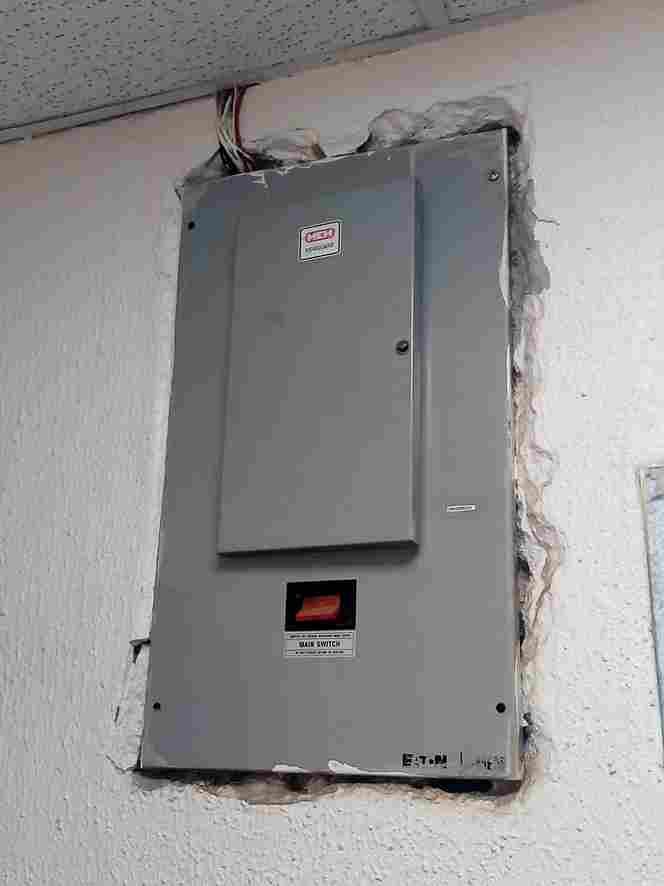
Can You Smell An Electrical Fire?
Yes, the burning odor is a sure sign of an electrical fire. If you smell something electrical burning, unplug all appliances and check all outlets and light switches to make sure they are not hot to the touch. If the smell continues, contact a professional electrician and leave your home immediately.
How Quickly Does An Electrical Fire Spread?
An electrical fire can start in less than five minutes and spread very quickly. When it comes to electricity, the smallest spark can cause an electrical fire. While you might find that hard to believe, these fires are a real danger and cause more than $6 billion in property damage each year.
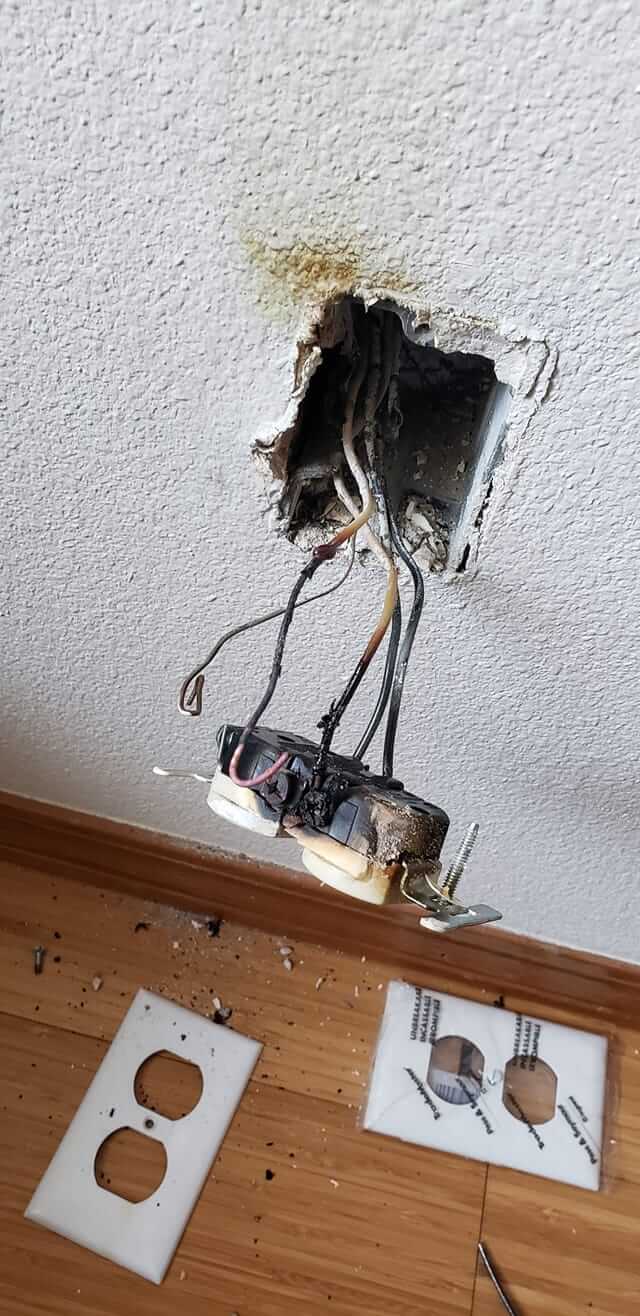
If you come across an unknown fire in your home, the first step is to identify it. Electrical fires are fairly easy to recognize — they'll involve anything plugged into a wall outlet, including appliances and Christmas lights, as well as wires and circuit breakers. If you see sparking or flickering coming from any of these sources, it's likely an electrical fire.
WE CAN HELP WITH ANY SITUATION AND WE'RE READY TO GIVE YOU A FAIR CASH OFFER!
Enter Your Information Below it is Quick, Easy & Free!
Get Cash Offer
We will get back to you as soon as possible.
Please try again later.
According to the National Fire Protection Association (NFPA), electrical fires account for 9% of all residential building fires, which equals over 26,000 fires annually. These fires result in an estimated 280 deaths, 1,125 injuries, and over $1 billion in property damage every year.
Electrical fires account for approximately one percent of all reported home fires in the United States. But there is good news: Electrical fires in residences have decreased by 10% over the last decade, according to NFPA.
The NFPA reports that from 2012 to 2016, home electrical distribution and lighting equipment were responsible for the ignition of an estimated average of 28,600 reported home structure fires per year. These fires caused an annual average of 420 civilian deaths, 1,370 civilian injuries, and $1.4 billion in direct property damage per year.
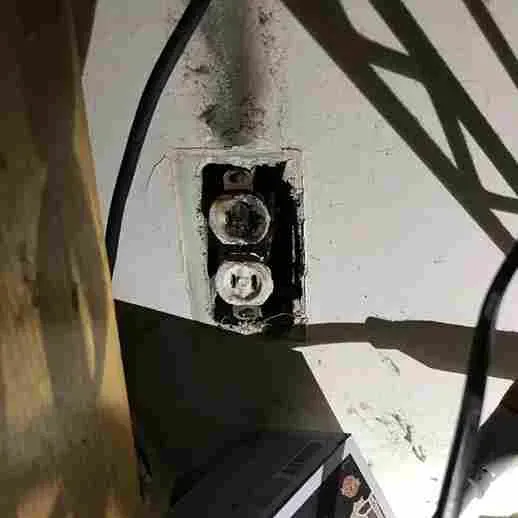
Electrical fires can start in walls for a number of reasons, but the most common is faulty wiring. When electrical wires touch each other or a metal surface, it creates friction and heat, which may lead to a burn mark on the wall or even a small fire. Overheated wires can also spark a fire within your walls. Some older homes have aluminum wiring that is more prone to overheating than copper wiring.
The three most common electrical hazards that can result in a fire are:
- Overloaded circuits or outlets: When too many appliances are plugged in, it can cause the circuit to overload, resulting in a power surge or electrical fire.
- Faulty wiring: Poorly maintained or improperly installed wiring can create a high level of heat that could start an electrical fire.
- Aging appliances, especially those with frayed electrical cords: Appliances that are old and damaged are more likely to overheat and start an electrical fire.
NOTE: If you suspect an electrical problem, you should call an electrician to install appliance-grade outlets in your home. This is necessary for the safety of your appliances and your home. Electricians can also install ground fault circuit interrupters, which act as surge protectors.
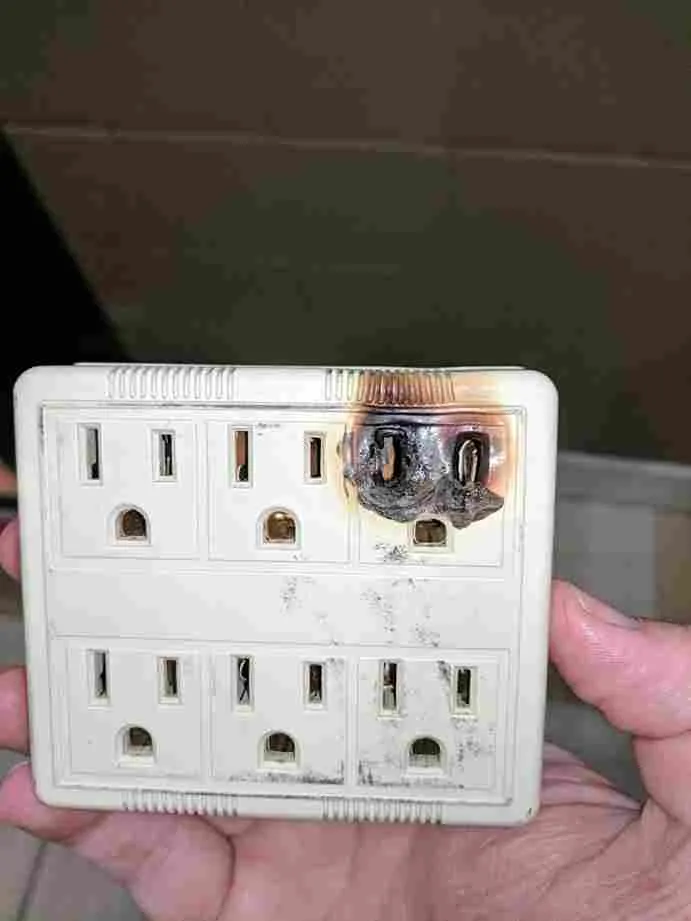
Breakers trip to prevent an electric fire from starting due to overloading circuits or short circuits occurring in your home’s wiring electrical system. However, if you do not notice that a breaker has tripped and continues to use too many appliances on a single circuit, the breaker may not be able to prevent an actual fire from breaking out.
There are many reasons an electrical fire can happen, but we're going to focus on the most common and preventable ones. The first is a loose connection or ‘hot spot.' This is when the contact between two wires, a wire, and a terminal or a busbar experiences increased resistance and begins to heat up. This heating up is caused by an arc and can cause melting, vaporization of metal, and in some cases even explosions.
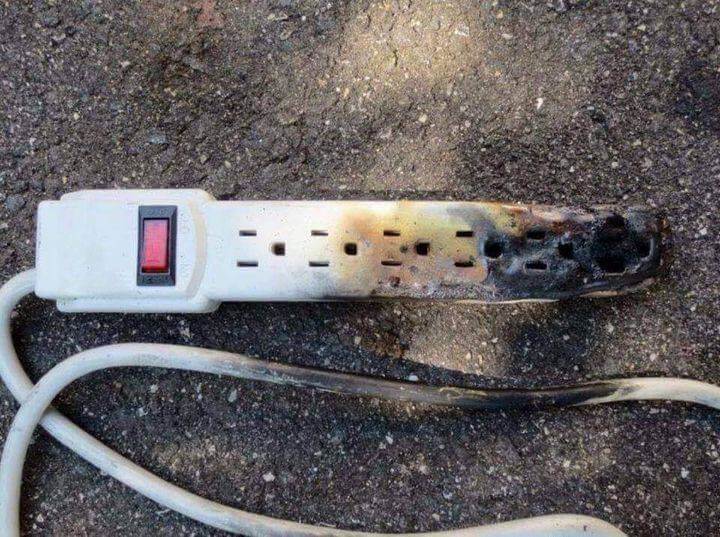
The GFCI outlet protects people from electrical failure but does not prevent electrical fires. The outlet disconnects the circuit when it detects ground-fault current, but it does not protect from overload conditions that can lead to overheating. When an overloaded circuit causes an electrical fire, the GFCI will trip and disconnect the flow of electricity to prevent electrocution.
Selling Your Property as an Option After Electrical Fire
Selling a house with fire damage - FAQs answered. After experiencing an electrical fire in your property, deciding to sell can be a sensible option to start anew. However, selling a fire-damaged house comes with its challenges. One crucial aspect is finding motivated buyers who are willing to invest in your fire-affected property. Despite the recent incident, there are individuals and investors who see potential in such homes and are eager to undertake renovations. To maximize your chances of finding motivated buyers for your fire-damaged house, it's essential to showcase the unique selling points of your property, be transparent about the damage, and seek the assistance of real estate professionals experienced in dealing with fire-damaged properties. With the right approach and guidance, you can navigate the selling process successfully and find buyers who see the opportunity in your property's potential rather than just focusing on its past fire incident. Selling a house with fire damage - FAQs answered, can address common concerns and provide valuable information for both buyers and sellers in this unique real estate market.

Get Cash Offer
We will get back to you as soon as possible.
Please try again later.

Happy Customers



All Rights Reserved | Fire Cash Buyers


